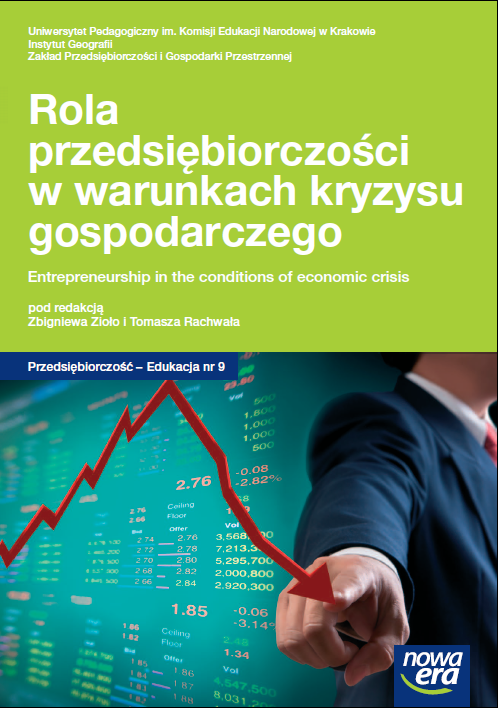The role of vocational advisory services in the creation of cluster initiatives in the educational systems in Zabrze, Gliwice and Rybnik
DOI:
https://doi.org/10.24917/20833296.9.19Keywords:
vocational advisory system, educational needs, career paths of graduates, educational management.Abstract
Decision making processes of graduates of all educational levels are essential to the creation of their educational and career paths. In the conditions of dynamic economical changes, the systems of vocational advisory services play a very important role. Their main task is to provide professional consulting on career planning for pupils and graduates in accordance with their needs, attitudes and requirements of the labour market. This article presents research on the vocational advisory system, carried out in the Silesia region. The first part highlights the well-organised structure of the vocational advice system in Zabrze. The second part presents research on vocational advisory systems, carried out in Gliwice and Rybnik, in the following aspects: ways of researching information about career paths among respondents, effectiveness of the work of vocational advisors, effectiveness of lessons on ‘basics of entrepreneurship’, the need for information on labour market perspectives.
References
Borowiec, M. (2011). Role edukacji w procesach globalizacji. Przedsiębiorczość – Edukacja, 7, 296-307.
Dorocki, S., Kilar, W., Rachwał, T. (2011). Założenia i cele projektu „Krok w przedsiębiorczość”. Przedsiębiorczość – Edukacja, 7, 308-320.
Kurek, S., Rachwał, T. (2010). Założenia i wstępne wyniki europejskiego projektu badawczego FIFOBI w zakresie kształtowania kompetencji uczniów gimnazjum do prowadzenia działalności gospodarczej. Przedsiębiorczość – Edukacja, 6, 472-485.
Pradela, A. (2010, kwiecień). Diagnoza potrzeb edukacyjnych szkolnictwa zawodowego w Gliwicach. Niepublikowany raport z eksperckiego panelu dyskusyjnego. Gliwice.
Rachwał, T. (2009). Ocena projektu zmiany podstawy programowej podstaw przedsiębiorczości (przedstawionej przez MEN w 2008 r. w ramach reformy systemu edukacji). Przedsiębiorczość – Edukacja, 5, 349-372.
Wąsik, H. (2010). Nauczanie przedsiębiorczości w kontekście integracji europejskiej. Przedsiębiorczość – Edukacja, 6, 486-492.
Zioło, Z. (2011). Rola przedsiębiorczości w warunkach nasilających się procesów globalizacji. Przedsiębiorczość – Edukacja, 7, 10-23.
Downloads
Published
How to Cite
Issue
Section
License
Articles are published under the terms of the Creative Commons License (CC BY-ND 4.0; Attribution– NoDerivs).

